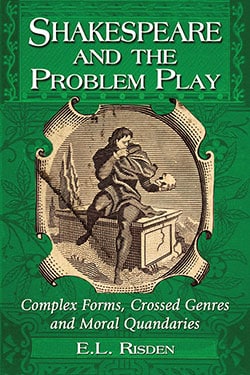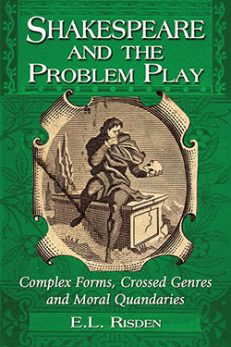Shakespeare and the Problem Play
Complex Forms, Crossed Genres and Moral Quandaries
Original price was: $29.95.$14.99Current price is: $14.99.
In stock
About the Book
Shakespeare’s plays provide a rich source of genre variation as well as moral or ethical issues that invite deep study. The genre issue often proves the very moral crux where Shakespeare raises the most complex questions. He aimed to build good plays, not simple fulfillments of genre demands. To him “good plays” meant leaving his audience with problems to consider.
This book begins with those works most commonly appearing in studies of problem plays, The Merchant of Venice, Troilus and Cressida, All’s Well That Ends Well, Measure for Measure; moves to some comedic problem plays, Much Ado About Nothing, A Midsummer Night’s Dream, and Twelfth Night; and then to tragic problem plays, Hamlet, Othello, and King Lear. It concludes with some problems in the history and romance genres for the issues they raise in love, adventure, and governance: Henry IV, Part 1, Henry V, Cymbeline, The Tempest, and Love’s Labor’s Lost.
About the Author(s)
Bibliographic Details
E.L. Risden
Format: softcover (6 x 9)
Pages: 232
Bibliographic Info: notes, bibliography, index
Copyright Date: 2012
pISBN: 978-0-7864-7243-7
eISBN: 978-1-4766-0094-9
Imprint: McFarland
Table of Contents
Preface: The Idea of the Problem Play 1
1. The Merchant of Venice: Does Anybody Know the Quality of Mercy? 15
2. Troilus and Cressida and the Consummate Anti-Genre 42
3. All’s Well That Ends Well: Not Really 66
4. Straining the Quality of Mercy: Measure for Measure 90
5. Comedic Problem Plays 113
6. Tragic Problem Plays 144
7. History and Romance: Problems of Love, Adventure and Language 177
Chapter Notes 205
Bibliography 219
Index 221





